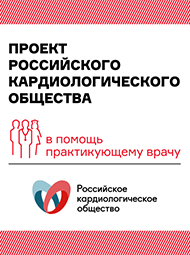Genetic risk score may predict ACS recurrence
A genetic risk score of 47 known CAD risk single nucleotide polymorphisms may predict recurrent ACS, according to data published in Circulation: Cardiovascular Genetics.
Researchers evaluated 2,090 patients with ACS from the Corogene study. These patients had undergone coronary angiography from July 2006 to March 2008 at Helsinki University Central Hospital, and then were genotyped and followed until Dec. 31, 2012.
Then, two genetic risk scores (GRS) were created from CARDIoGRAMplusC4D results: GRS47 of 47 single nucleotide polymorphisms (SNPs) and GRS153 of 153 SNPs. Adjustments were made for age, sex, history of hypertension, dyslipidemia, diabetes or prior myocardial infarction, smoking, subtype of MI, three-vessel disease and congestion observed on chest X-ray.
The primary endpoints were recurrent ACS or a composite event of CAD-related death or recurrent ACS.
About 11% of patients had unstable angina pectoris, 54.3% had non-STEMI and 34.9% had STEMI. Non-STEMI or STEMI was more likely to be the index ACS event in patients with recurrent ACS. During a mean follow-up of 1,964 days (interquartile range, 1,542-2,169), 12.6% of patients had recurrent ACS and 22.6% of patients had a composite event or recurrent ACS or CAD death.
Of the 153 SNPs analyzed, the only one with a significant association with recurrent ACS (HR = 1.591; 95% CI, 1.204-2.101) and a composite event of recurrent ACS (HR = 1.459; 95% CI, 1.176-1.81) was the locus rs2832227 in chromosome 21, even after adjustment.
The researchers observed an association between GRS47 and recurrent ACS, even after adjustment for risk factors (HR = 1.169; 95% CI, 1.009-1.355), but not with GRS153. GRS47 was also inversely related with smoking (OR = 0.22; 95% CI, 0.08-0.62) and STEMI (OR = 0.36; 95% CI, 0.13-0.96), but was not associated with the composite endpoint. The locus rs2895811 had a positive correlation with smoking in all genetic risk scores.
“The addition of GRS to clinical risk model did not improve risk prediction for recurrent ACS enough to be clinically significant. This is in line with the suggestion that CAD related [SNPs] from large-scale [genome-wide association] studies related primarily to atherosclerosis and less to MI,” the researchers wrote. “The significance of smoking in relation to genetic CAD predisposition may merit further evaluation in ACS patients.” – by Tracey Romero
Disclosure: The Corogene study was partially funded by the Aarne Koskelo Foundation, the Finish Foundation for Cardiovascular Research and the Helsinki University Central Hospital Grant. The researchers report no relevant financial disclosures.
Source: www.healio.com






